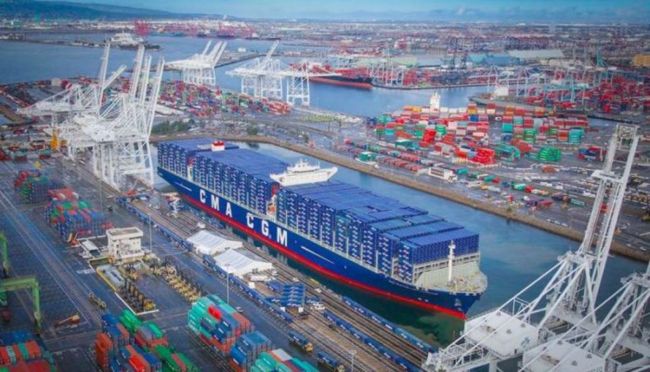Lekki Deep Sea Port must lead Africa in Tech-Driven Efficiency, Says Shippers’ Council

As the maritime world shifts toward data-driven logistics and automated cargo handling, the Nigerian Shippers’ Council (NSC) is calling for aggressive adoption of advanced technologies to ensure the Lekki Deep Sea Port emerges as a globally competitive logistics hub for West Africa.
In a strategic engagement with the Lekki Port management, NSC Executive Secretary, Dr. Pius Akutah, emphasized that the facility—Nigeria’s first fully-automated deep-sea port and a flagship Public-Private Partnership (PPP) project—must not only function efficiently, but also set the benchmark for shipping excellence on the continent.
“Lekki Port is a world-class infrastructure project. Now, it must be complemented by cutting-edge technology, smart processes, and predictive analytics to drive port efficiency and investor confidence,” Akutah said in a statement on Thursday.
The Stakes: A Gateway or a Bottleneck?
Lekki Deep Sea Port is arguably Nigeria’s most transformative maritime infrastructure project in recent decades. Strategically located along the Atlantic corridor in Lagos’ Ibeju-Lekki axis, the port is designed to serve as a transshipment hub for West and Central Africa, boasting state-of-the-art cranes, deeper draft berths, and advanced container handling systems.
But technology is not just an added layer—it’s the backbone of global port competitiveness. With maritime giants like Singapore, Rotterdam, and Dubai setting the pace with AI-powered logistics, blockchain-based documentation, and fully digitized port community systems, Nigeria cannot afford to rely solely on bricks and mortar.
For the Shippers’ Council, the Lekki Port is a critical national asset, one that must operate on par with international best practices to reduce cargo dwell times, cut logistics costs, and eliminate perennial bottlenecks that plague legacy ports in Apapa and Tin Can.
Investor Signals and Tariff Realities
In response, Mr. Wang Qiang, Managing Director of Lekki Port, acknowledged the growing infrastructure and operational demands, noting that the PPP model requires continued investor confidence and financial sustainability. He appealed for a review of existing port tariffs to reflect the capital-intensive nature of the port’s ongoing expansions and operational upgrades.
“There are significant expenditure demands. The port is committed to long-term investment, but there must be a balancing mechanism that encourages profitability without stifling competitiveness,” Qiang said.
This opens up a crucial dialogue around tariff harmonization, regulatory flexibility, and investment predictability—all essential to attract and retain global shipping lines, logistics providers, and cargo owners.
NSC’s Bigger Agenda: A Tech-Led Maritime Ecosystem
Beyond Lekki, Dr. Akutah reaffirmed the NSC’s mandate to promote a digitally integrated and investment-friendly maritime environment. This includes pushing for port automation, enhanced intermodal connectivity, and the development of smart logistics corridors anchored on data visibility and seamless cargo flow from port to hinterland.
The Shippers’ Council is also advocating for the deployment of port community systems (PCS) and maritime single windows that can integrate customs, terminal operators, shipping agents, and other stakeholders onto a common digital platform—a proven model already delivering efficiency gains in Morocco’s Tangier Med and Kenya’s Mombasa.
Bottom Line: Lekki Port Is a Litmus Test for Maritime Reform
As Nigeria seeks to reposition itself as a regional maritime power, Lekki Deep Sea Port stands at the intersection of opportunity and accountability. Its success will be a bellwether for the viability of PPPs in maritime infrastructure and the country’s readiness to compete in the digitally driven global shipping economy.
To get there, stakeholders must embrace not just innovation for innovation’s sake, but technology as strategy—a tool for solving real logistical, operational, and financial bottlenecks.










